Seek Alternate Route #2: Olympic Records
In which we discuss an experience-first approach to listening to music, the impact of owning an independent record store, and more.
We’ve made it! The first official Seek Alternate Route interview is here. That is unless you count my conversation with Peter Keough, which was questionable at best (and psychologically iffy at worst).
When I first started poking around at local independent records stores in college, Olympic Records was the first shop I visited. Spending time at Olympic really helped kick off what has become a lasting appreciation of in-person browsing and musical discovery, and it’s still a place I visit regularly for that very reason. With that in mind, I figured what better place to start for Seek Alternate Route?
I had the pleasure of sitting down recently with Kevin Morosini, owner of Olympic Records, for a couple of hours of free-flowing discussion and record bin browsing. I hope you enjoy these highlights as much as I enjoyed our conversation!
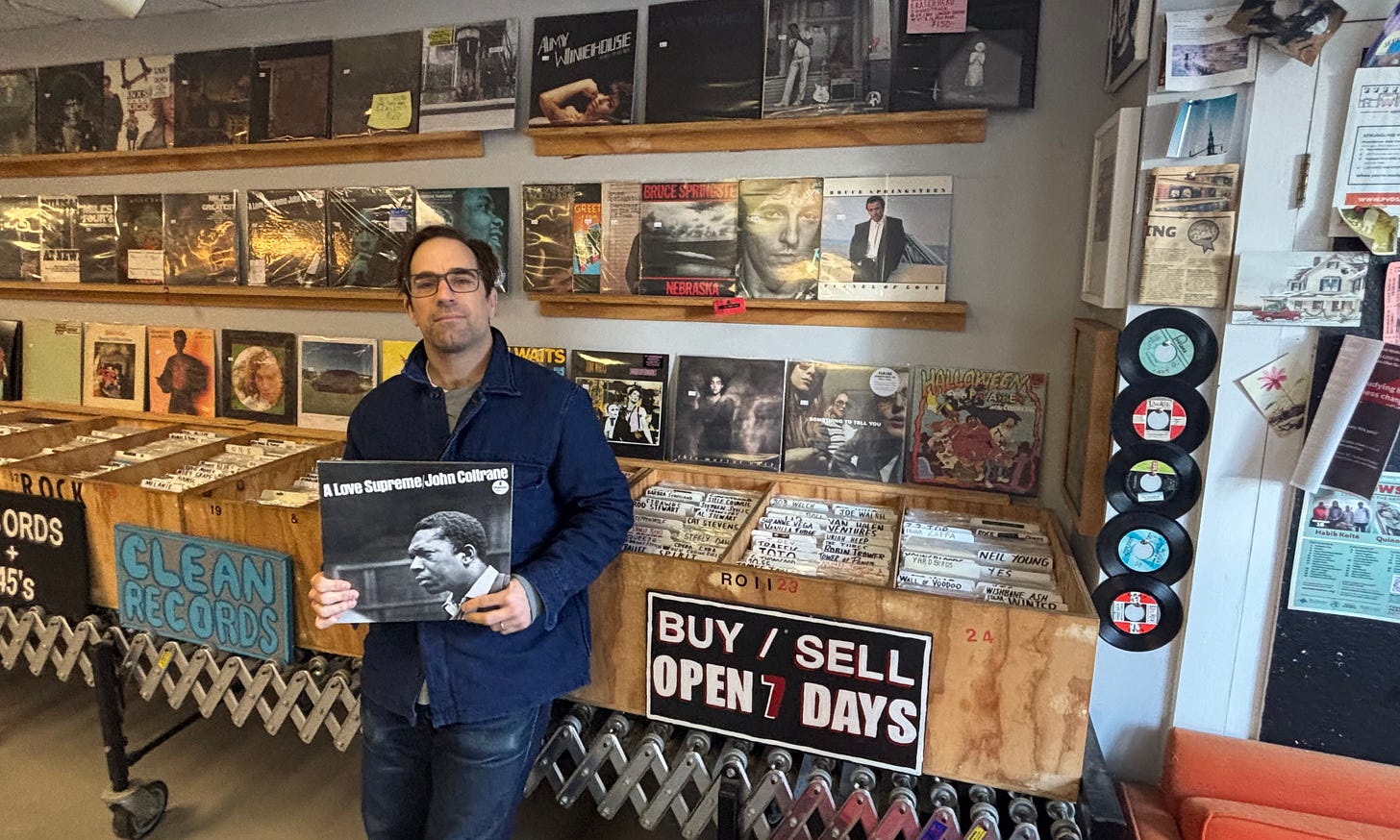
Seek Alternate Route Talks with Olympic Records
I met with Kevin Morosini at Olympic Records on a clear (and quite cold) morning at the start of the new year. Kevin offered me a seat on a sun-faded burnt orange couch by the front door, while he pulled up a milk crate and sat leaning against a support beam.
Kevin was kind enough to meet with me during shop hours, and our conversation was periodically paused by visitors – both regular and new – that he routinely offered assistance and recommendations to. Coincidentally, our talk was soundtracked by two albums I quite enjoy – Bob Dylan’s Blood on the Tracks and John Coltrane’s A Love Supreme – which Kevin would walk over and flip on the shop’s turntable after each side ran out.
Our conversation traversed a variety of interesting topics, from Kevin’s history with vinyl records, to the ways he listens to music, to the influence owning a shop has had on his personal taste (and vice versa), to the distinction between having a hobby, being a “collector,” and simply experiencing things you enjoy.
On His History with Physical Music
Kevin Morosini: I started buying tapes when I was a little kid. I was probably one of the last people my age to get a CD player, because I had a really great tape collection. When CDs came out, I was just kind of like “Why do I need these?” But I had a boombox, and the cool thing was I could record CDs onto tape, so I started making a bunch of mixtapes and all that stuff. And then one day in high school, I just bought a record, you know? I loved Jane's Addiction, and I was at a record shop up in Boston and I saw they had like their first album and I was like, oh, this is really cool! So I bought it, and then shortly thereafter went to Goodwill and got a record player. From there, I would buy both – I would get CDs, and I would buy the record whenever I could find it.
Seek Alternate Route: Was there a reason you started to lean more into records as time went on?
KM: Well I was listening to a ton of punk and hardcore stuff, and they put all their albums out on vinyl, so it wasn't really a problem trying to find them. Really, the big thing for me at the time was that the records were cheaper. They were like three to five bucks cheaper, where a brand new CD was more expensive. But it wasn't until the early 2000s – maybe like 2006 or 2007 – where I was just kind of like ok, I'm not buying CDs anymore. So I sold most of my CDs, except for maybe one milk crate, and from that point on I was just dedicated to buying records.
On the Decision to Open a Record Store
SAR: What got you to go from buying records to deciding to open up your own shop? Was there a specific path there?
KM: You know, there really wasn't much of one. It was just wanting to do something different, and being like, yeah, I think I could run a store! And then luckily everything lined up pretty quickly. It wasn't anything where I was like, planning for years, saying okay, I'm gonna try to stockpile all these albums. I just thought about it, and then I was like, all right, I think it could work. So I found the space, and fairly quickly it all fell into place – knock on wood!
SAR: Did it come out of any personal love for these kinds of independent stores?
KM: Yeah definitely, it related to that. I love Providence, and I’ve always loved all the amazing small businesses here – it was one of those things where I thought I could maybe do that too. I grew up going to the Mystic Disc in in downtown Mystic [Connecticut]. I worked right next door all through high school, and I grew up going there all of the time. I saw [the owner] Danny working all the time with a handful of employees, and he’s made it happen for over 40 years! I saw the blueprint and knew that I wanted to do that too.
On the Retrospective Influence of Opening the Shop
KM: I opened the store when I was like 32 years old I believe, in 2011, and up until that point really I only listened to new music – you know, some older eighties, nineties, 2000s [stuff] – but with a pretty hefty focus on what record was coming out next week.
SAR: Yeah, I can understand that kind of listening behavior. That tracks with how I was mostly listening to stuff growing up, very of-the-moment or forward-looking.
KM: Several years after opening the store I started listening to artists like Neil Young, and just sort of realized that because I was only focused on new music, I had like missed several decades of really strong jazz, rock, all that stuff. I went from listening to like pop stuff, and then in probably sixth grade started listening to The Doors and Led Zeppelin, you know, your classic progression. Then I heard Nirvana – I wouldn’t even really say Nirvana, since I was never super into them. I listened to Nirvana and Pearl Jam and the like, but I was more into stuff like Dinosaur Jr., and once I realized there was that type of music, I went down that rabbit hole.
On Different Listening Habits
SAR: You have this turntable set up in the shop, and it’s always playing something over the sound system. How much crossover is there between what you play in here and what you might be listening to at home?
KM: I mean I’d say a decent amount, but it’s a different kind of listening.
SAR: Different how?
KM: Here, I'll listen to this copy of Blood on the Tracks, like, five times today. I play records that I really like here, and I just listen to them like all day long. I’ll listen to that Allman Brothers record [Allman Brothers] for about half the day. And then after that it’s like, all right, let me chuck something else on. But really, I've got a play pile of records next to the turntable over there, and I'm as guilty as anybody else of just grabbing whatever’s on top, because it is all stuff that I like to listen to! So for me, I listen to the same sort of stuff kind of incessantly here.
SAR: Does that change what you listen to at home, or is it the same kind of stuff?
KM: So at home, I don't listen to as much Dylan weirdly, because I do listen to him a lot here. I don't listen to a lot of Bruce Springsteen at home either, because I listen to him all the time when I’m here. Sometimes I'll put on Darkness at the Edge of Town or Asbury Park at home and it's like, oh, it sounds so much different in my house than it does here.
SAR: So when you’re here it’s a kind of “whatever you’re in the mood for” type of listening, which is often stuff you already like. Do you ever listen to anything you don’t already know?
KM: I do actually use this place as a way to find new stuff that I like. I’ll kind of randomly pull out stuff to throw on, because it's like who cares, you know? I don't have to be into everything I play here! So sometimes I'll just like go like, oh, let me put this record on, I've never heard anything about it. And I'll use this as like a little bit of a filter for finding new things.

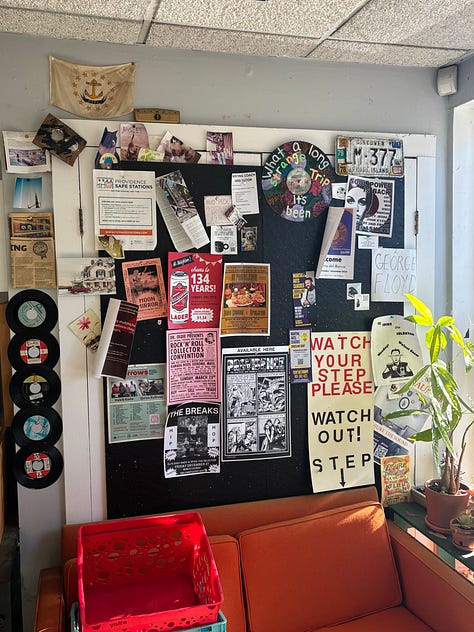

On Curating vs. Acting as a Conduit
SAR: One of the things I like about independent record stores is that they each have their own specific feel to them, a kind of curated atmosphere. In a world where you can, at least in theory, buy a pressing of almost any popular record online and have it show up at your door, I love going into a shop that feels less like a marketplace and more like a reflection of someone’s taste. Do you see Olympic Records as a curated version of your taste, or is it more open than that?
KM: When I first opened I carried a lot of new music, a lot of new records that I was hearing and really liked. As that new stuff kept coming out, the place was definitely pretty heavily curated by it, because that was the kind of music that I was ordering. Once I started getting into older stuff, the used records really sort of took over, and the new stuff started to shrink more and more and more until, you know, now I don't really order new records at all. So now I'm at the mercy of whatever of comes into the store, whatever collections I’m buying from people.
SAR: Does that mean the curation has taken more of a backseat, or do you still take an active role in deciding what goes out?
KM: There's still a certain amount of curation – I've got thousands of records back there to clean, price, bag, and put on the shelves and in the bins. So there's still a little bit of curation, but it's far less. It’s more organic. Obviously if somebody comes in and says like, hey, I'm looking for that Allman Brothers self-titled album, and then I buy it, that kind of stuff gets moved to the front of the line, because hopefully they're gonna come back and it's gonna actually be here for them. So it's far less [curated], but I would be be lying if I didn't say there's a a bit of curation.
SAR: So is it more about catering to your potential customer than it is pointing them in the direction of something you like?
KM: Yeah I mean to a certain extent I don't ever know what I'm gonna sell; I don't know what the next person who comes in the door is gonna want to buy. So I like to try to have a little bit of everything – it’s more about acting as a kind of conduit. You get the stuff in, you clean it, you put it out, and it's available for the people. But you can still have those touches of like, oh, I really like this one. I'm gonna play this one a lot, and I'm gonna put it out for others to find.
On the Experience of Listening to Vinyl Records
SAR: I know when you're in the shop here you always have the turntable going – when you're at home, is your listening experience almost entirely record-based as well?
KM: Yeah, it really is. I mean you can't take records jogging, you know, and you need a CD player or the radio in the car. But I never really listen to Spotify, except for when I’m at jiu jitsu. I've got a couple of Spotify playlists for when nobody else wants to put their phone on the aux, but other than that I don’t really use it. I just have a record player and a receiver and speakers, and I’ve got a pretty okay record collection that does the trick.
SAR: What is it that makes you so dedicated to vinyl? You’ve talked about your experiences with CDs and tapes – what is it about records that makes them your preferred format?
KM: It’s the total experience for me. That's why I don't listen much to Spotify and stuff like that, because it's not really that fun, you know?
SAR: Yeah, I think I know what you mean – it feels different, it sounds different, the environment is different.
KM: Yeah for me it’s always been about the experience, and then comes the sound and stuff. Realistically, I can throw a CD on in my car and it sounds pretty good. It sounds sounds totally fine, and I’m sure if I had a CD player at home it would sound just as good as an album. But it would be literally 80% less fun for me. From the first time I held a record, I just knew “Oh, this is it for me.”
SAR: Does sound quality play a role at all? I know a lot of people talk about that.
KM: I definitely have started to appreciate the sound quality and the mastering and the soundscape of an album as I've picked up more gear. It’s wild when you can put on a record and it's like, oh, the bass player is here, the drummer over here – you feel like you're in the room with them. If you just have a perfectly fine CD player, the music sounds great coming out of it, but once you can get all this gear set up, that's when it's like it's like, whoa, this is actually way more of a present experience. This actually does make a big difference.
On the Distinction Between Collecting and Experiencing
SAR: Outside of owning this shop, would you call yourself a record collector?
KM: I guess you can call buying records “collecting records.” I've started to hear this thrown around, people calling record collecting a hobby. Personally, I've always thought that’s weird – I've never thought of records as a hobby. I would just say I listen to music, and records have always been the way that I listen to music. That's not really a hobby, it's just something that I inherently do.
SAR: Huh, I guess I never really thought about it that way. But I do think I get where you’re coming from – if it’s just something you naturally do, then it’s not a hobby?
KM: I don't really even know what the technical definition of a hobby is, but I just don't consider things like reading or listening to music or going and looking at art to be a hobby – these are just things that I do for fun. This is all stuff we're existing with, and the experience of using it is what’s really fun. Say somebody gave me one of those $100,000 turntables that looks like a goddamn spaceship – it looks like a drone, and weighs probably over 75 pounds – if somebody gave me one of those things, I would totally take it. But every time I walked by it, I would think “That is the ugliest thing I have ever seen,” you know? It's in your living room and you're dealing with it every day, and it’s distracting. Even if I had infinite money I would have a hard time buying something like that, because every time I used it the “hobby” aspect of it would be taking out of the experience.
SAR: Got it – so in this case, listening to music is the experience, and the records are just an extension of that rather than a “collection” or a “hobby?”
KM: Yeah, like I totally wouldn't say I “collect” books. I don't collect books, I just buy books that I want to read. And it becomes a collection by definition, there being three or more books gathered together. It’s more about the actual experiencing of the thing, not just the fact that I read books on paper. It’s less about the collecting and the having of the items, and more about the fact that there's things you want to listen to, things you want to read, stuff like that.
SAR: Following that kind of logic, is there anything that you would say you do “collect?”
KM: One thing I could say that I do collect are old postcards. I collect older stuff, stuff that I like from growing up, older history books and pamphlets about Rhode Island, all this sort of ancillary kind of stuff. I mean I've got a lot of plants around too, but I wouldn't really consider myself a gardener – I just like having plants around and I have more than three. I've got more than three of a lot of shit!
SAR: So “collecting” is more for the little things. But collecting as a whole is still too technical of a term to be tied to these larger, more vital experiences that you enjoy.
KM: Yeah, it's hard for me to consider myself a record collector as much as just like, you know, I like music. And I really like that this how I listen to it. But at the same time, if every record in the world ceased to exist, I guess I would still be listening to stuff on Spotify or something like that. I always say that I love music, but I like records almost more than music, you know? It's like a weird sort of thing, where I love the music on there, but if it was in a shittier format, would I be somebody who just wouldn’t really listen to much music? It's so tied to the experience – I like books, but if I had to read them on a Kindle, I don't think I would really do it. So it's the method and medium.
On Being Present While Listening
KM: I always say records aren't for everybody, because to listen to records you have to be at home. And there’s so many entertainment opportunities out there – TV, streaming, podcasts – so you really need to choose to actually listen to records.
SAR: As someone constantly surrounded by music, do those kinds of distractions affect to you too?
KM: I'm as guilty as anybody, if not more, of trying to be in twelve places at once for the time that I’m at home – being on my phone and looking at this or that when I’m listening to music. I know that I want to be more conscious, I need to try to be more present in whatever it is I’m listening to at home. So it’s something I’m working on.
SAR: Hey I get it man, I’m right there with you.
Olympic Records’ Picks for Improving Personal Engagement
Towards the end of our conversation, I asked Kevin if he had any tips for slowing things down and really enjoying his time with music and creative expression. His suggestions included:
1. Listen to it Loud!
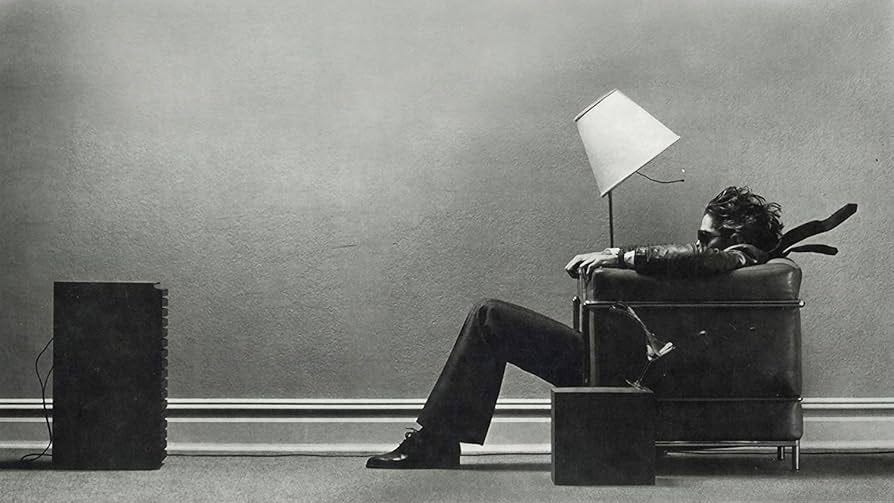
One thing I've actually started to do is to listen to music louder, where I used to just have it on as background noise while I’m doing other stuff. It's a little bit to the dismay of my wife because she's working from home, but I’ve been trying to turn up the music more consistently. And I think records really sound better like that.
If you pair the louder volume with the proper placement of your gear and speakers, listening to music really reveals a ton more, like I can really hear more. When it’s turned up louder, your amplifier starts to work a little bit better – it wants to be in this sort of sweet spot just kind of like how a car wants to hover in that perfect zone of RPMs. It's the same kind of deal with an amp, where the right volume can reveal so much more in the music.
2. …But Maybe Use Headphones
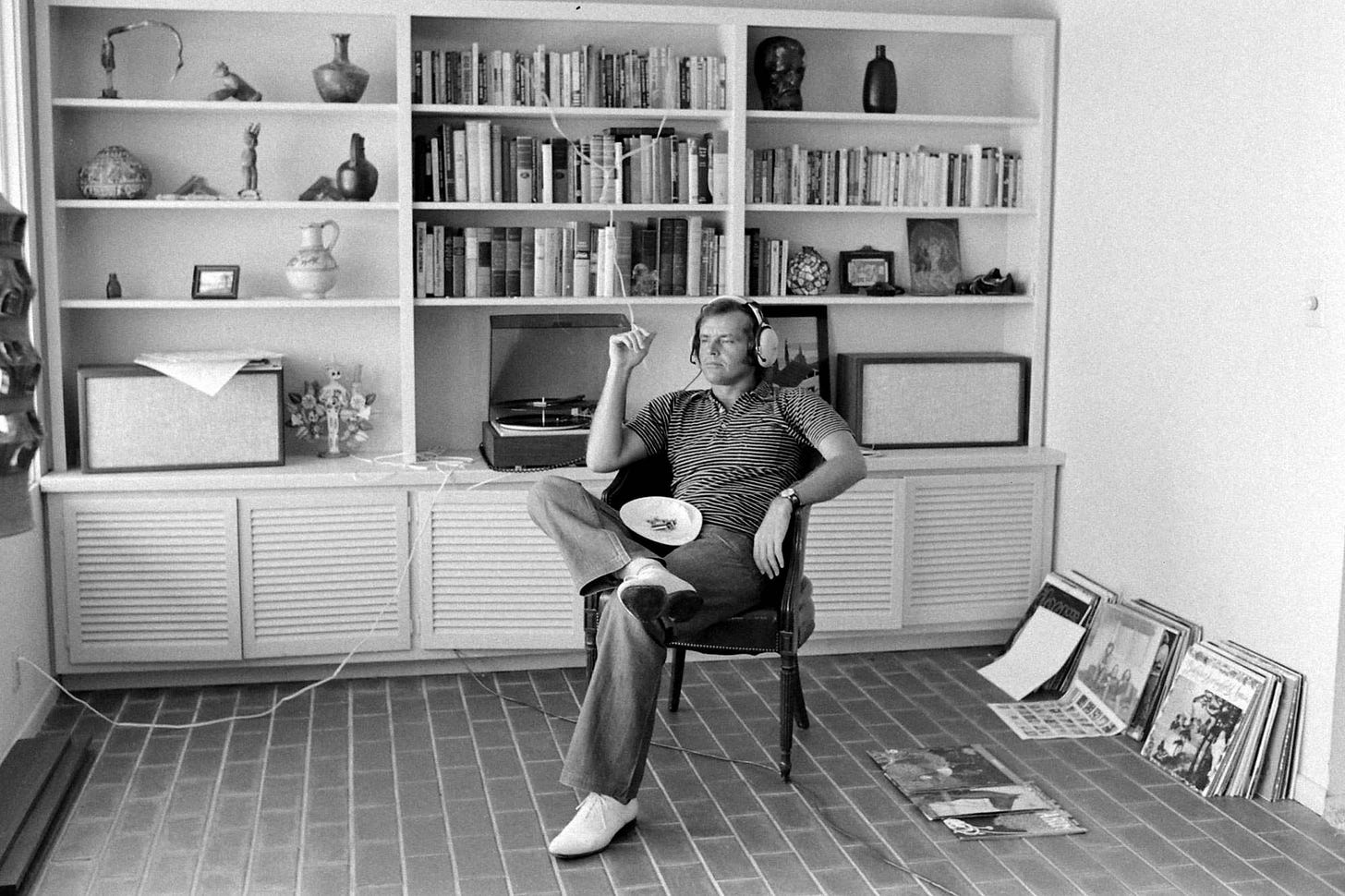
I know it's not always possible to listen to music super loud in your place. Because of that, I’ve been doing a decent amount of headphone listening these days as well. When I listen with headphones, I can turn it up a little bit louder and be more engaged without bothering my wife when she’s on a call in the other room.
The nice thing about headphones is that you don't have to spend a thousand bucks to get a really nice pair. When you buy a pair of speakers, you're buying a wood cabinet with a linen grill and all this other stuff on top of the speaker itself. When you're buying a set of headphones, you're just buying some plastic housing with some cheap padding and the speakers.
Since they’re right next to your ear, you can hear everything a lot more. I would recommend headphones if you want to be a little bit more engaged in what you’re listening to – it's hard to get more engaged than having your ear an inch away from the speakers!
3. Let Things Develop Naturally
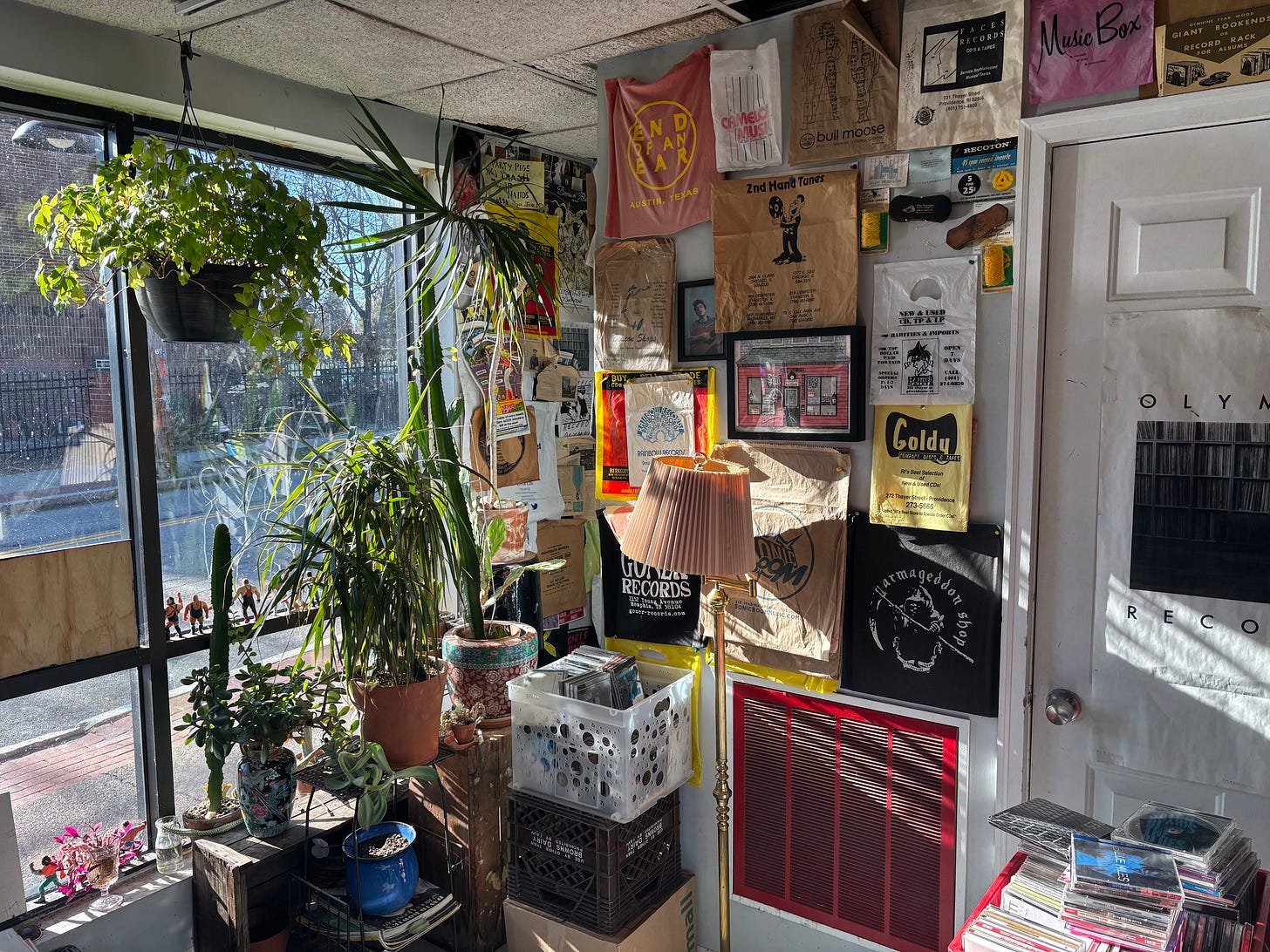
You can't really buy a record player and then just go out and get the perfect starter collection of records. The collection will, and should, evolve over time.
Just look around the shop – what you see here happened more slowly over time. When I first opened, I put the shelves up and knew that I wanted to have a big wall of forward-facing albums. I used to actually have a couple of shelves on that back wall there too, but then as I kind of got more into some 45s, I knew I wanted to adjust things and have space to hang up a bunch of singles.
A lot of this other stuff was gathered over time. You find an article here, an old postcard there, some 45s with love notes written on the labels to hang on the wall together. It's all stuff that's grown over the 13 years that I've been here. I didn’t really force anything, you just take your time and let it evolve.
Huge thanks to Kevin for letting me pick his brain and put together Seek Alternate Route’s first official interview! Located at 580 Wickenden Street in Providence, Olympic Records is open every Monday-Saturday from 10am-5pm. You can check out their Instagram and get a sneak peek of what’s new on the wall here (@olympicrecords).
Make sure to drop by and dig through their bins if you’re in the area! I have no doubt you’ll find something good – I know I always do.





This is some real shit